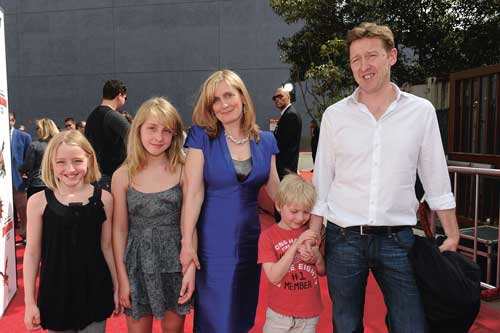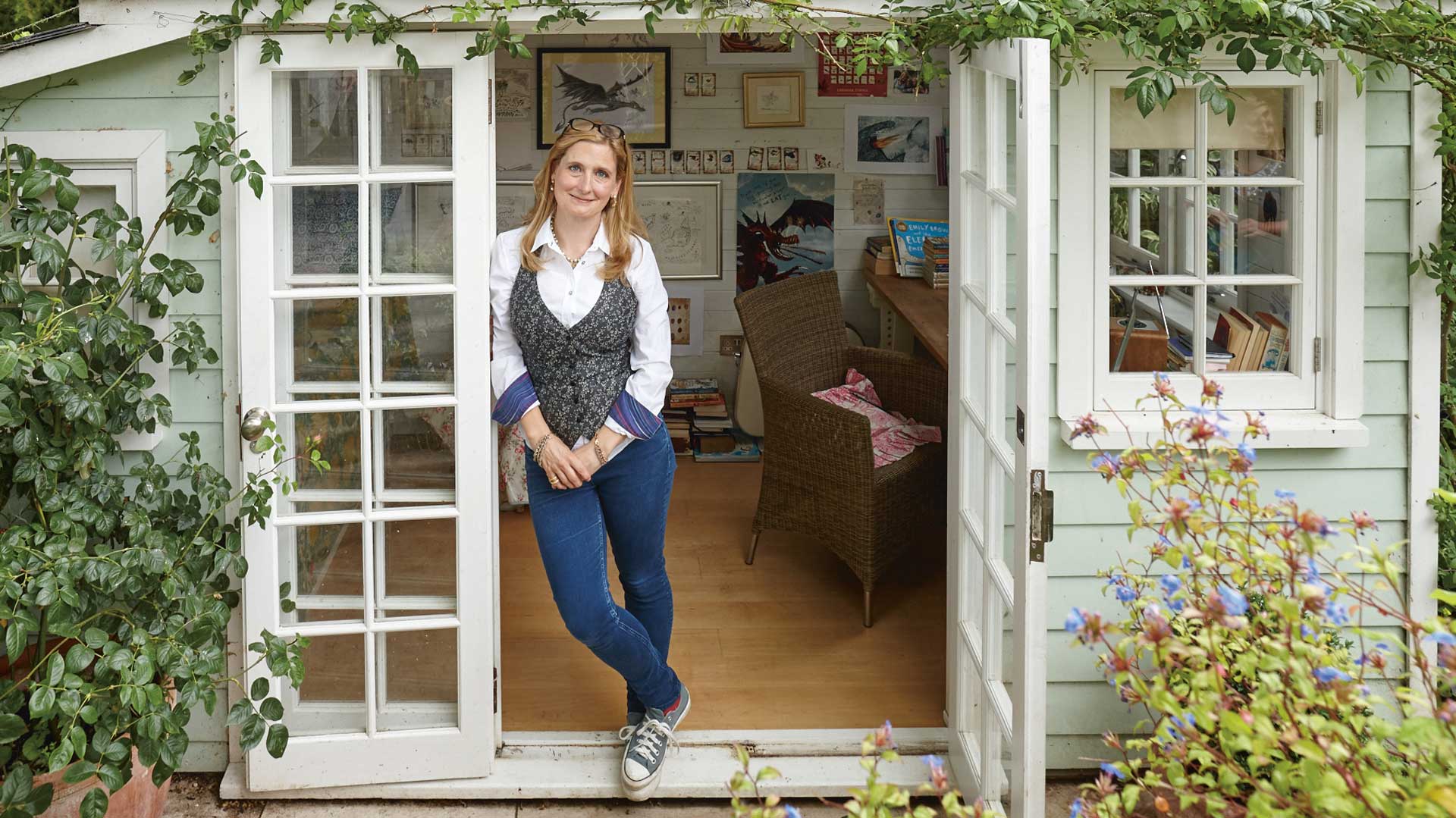I was an earnest, booky little 16-year-old, reading Chaucer and Shakespeare for fun. Jilly Cooper too though! I wasn’t at all cool, I was too enthusiastic. I’m still like that. But I was strong-minded and opinionated. I was at an all-girls school which was very academic, and didn’t take art seriously. They said I was too academic to do art A-level, so I left that school and went to one which did take art seriously. I met Lauren Child [creator of Charlie and Lola], my best friend, there. I was often in trouble at school, I was very dreamy and disorganised and usually late. Teachers don’t realise that if you’re disorganised, you spend the whole day being told off. It’s not very nice.
I had a very split childhood. Most of it was spent in central London, where my dad [Viscount Blakenham, chairman of The Financial Times and the RSPB among other organisations] worked. But he was an environmentalist and we spent as much time as possible on an uninhabited island in the Outer Hebrides. And there were lots of stories about Viking tribes – the Viking influence is very strong on those islands on the west coast of Scotland. That obviously had an impact on me; I’m still writing about it now. I think I came to enjoy London more as I got older, but as a kid I found it pretty constricting. We didn’t have a garden in our Chelsea home, and not many parks. It wasn’t a very friendly neighbourhood.
I think during my twenties my dad was a bit disappointed. I was a clever kid but I wasn’t making a mark
I always felt I could never measure up to my dad. He was a very strong character. He was a godlike person to me. I’d have to turn into the Incredible Hulk to be that big, that successful, never afraid of anything. I came from a whole family of over-achievers, business people and politicians and suffragettes. What could I ever do to impress that huge, over-the-top family? I think during my twenties my dad was a bit disappointed. I was a clever kid but I wasn’t making a mark. He would gently ask, when are you going to get a job? My first book was published when I was 30 but my first five books were picture books, not particularly ‘wow, this is the next thing’. And How to Train Your Dragon wasn’t an instant big hit. I think eventually though my parents were very proud, and that was lovely. It didn’t change the balance of power between us though. My dad was number one.
My dad’s heart was in walking and countryside and wildness. He was dauntless, not scared of anything. He wouldn’t get GPS because it spoiled the wilderness experience. There’s a bit in my latest book when you go walking with a giant and he knows every tree, and the story behind every hill. My dad was like that. He made every walk magical. I admired him terrifically but wasn’t a bit like him. He enjoyed being by himself, he was a bit of an island. I’m a very chatty person who wears her heart on her sleeve. My father was of the generation…he found it difficult to talk about himself and didn’t do small talk. He believed that ‘you have to be a man’. We loved each other but there was a big generational gap.

The teenage me would have been so excited by the idea that I would one day have my books published. Authors were my heroes. Ursula Le Guin, Diana Wynne Jones, Tolkien, Douglas Adams. I would have been over the moon at the idea that I’d be on bookshelves near them. Because when teachers tell you, as they often did, that you’ll never make anything of yourself, they do get to you. I didn’t have the confidence that I would be able to do it. I’d like to tell my 16-year-old self, and my 25-year-old self in fact, not to worry that all her friends seem to be getting their lives and careers sorted, and she’s still at art college. I’d say, hang in there! I knew I wanted to write and draw, but it’s disheartening to see everyone getting ahead and you’re still trying to hang on to your dream. I got my first book contract when I got pregnant, at 30. Suddenly I had a lot to prove, and not at the ideal moment. I’ve always done everything back to front!
Being a mother does weave itself into your books. How to Train Your Dragon – it could have been How to Train Your Baby really. But as well as working out what kind of parent I wanted to be, it was about working out my own childhood. So the book is topped and tailed by the voice of the older, wiser Hiccup, looking back and realising things he didn’t see at the time. I was like little Hiccup, trying to live up to this person, his dad, who he loves very much but isn’t at all like. My daughter told me recently her favourite subjects at school were PE and maths. Suddenly she seemed very far away. I think as a parent you want your children to be like you so you can be close to them. So I was writing with both perspectives. And I also like the idea that parents reading it to their children are reminded of their own childhood of magic and dragons, and can share that with their kids.





